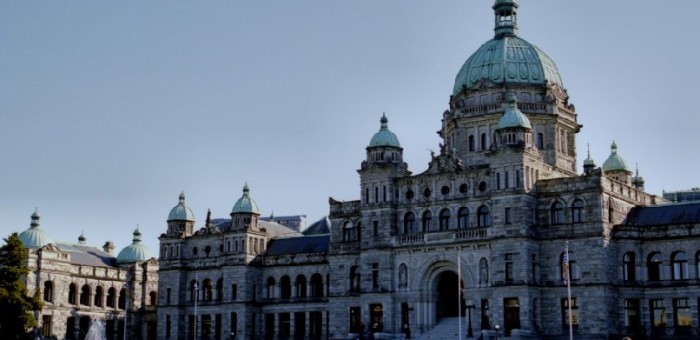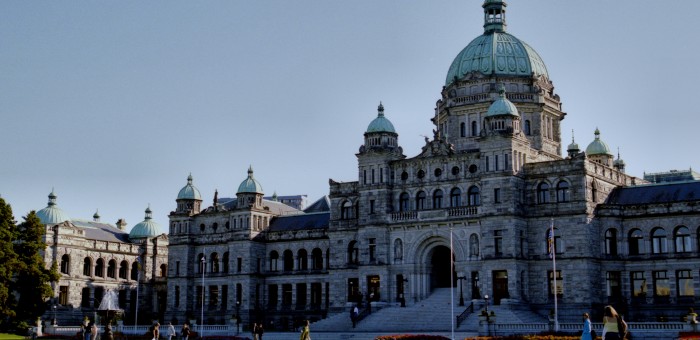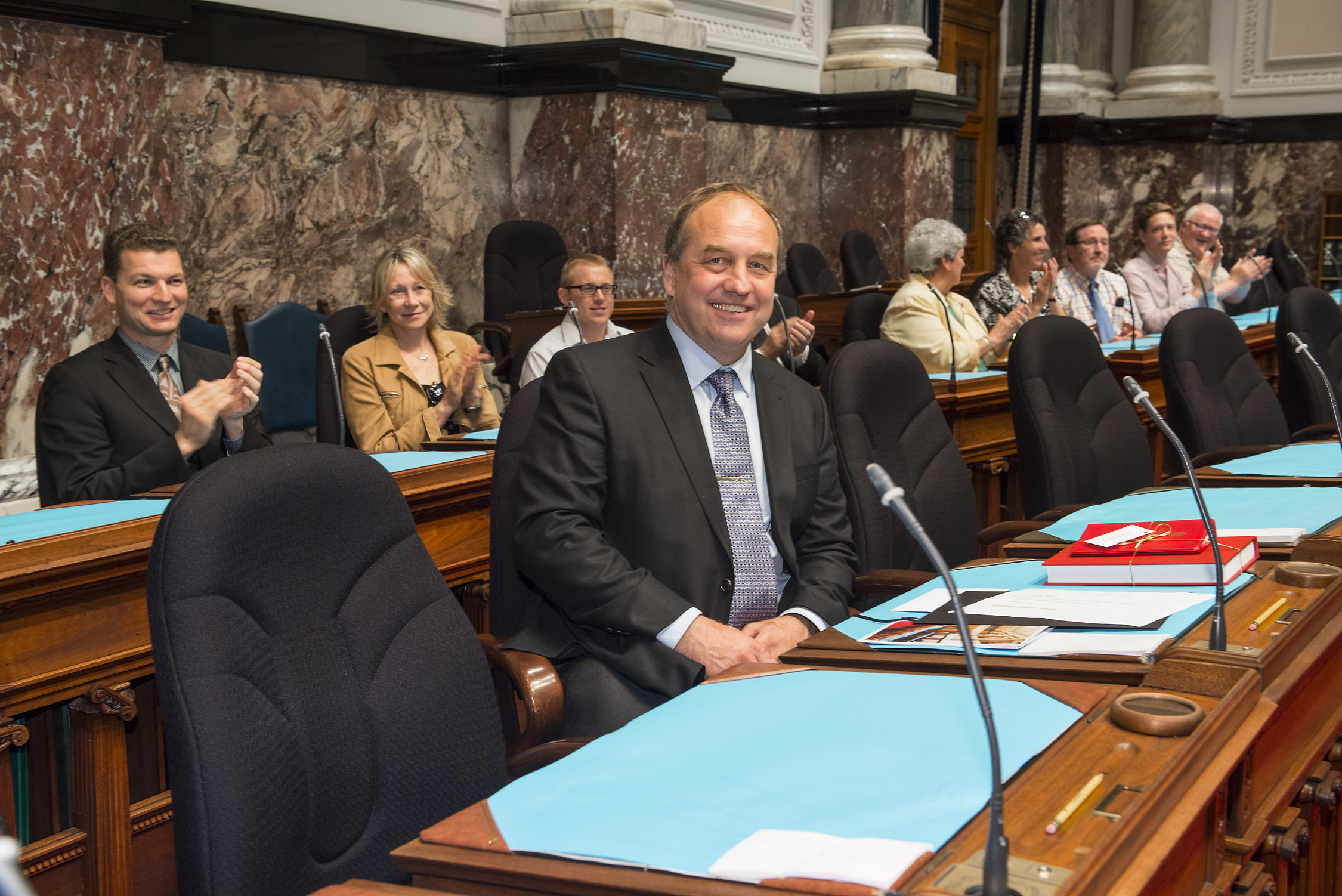Uncategorized
Amending and Subamending the Throne Speech – The Vote
Today in the Legislature we continued debate on the Speech from the Throne and voted on the amendment put forward by Selina Robinson, NDP MLA for Coquitlam-Maillardville, as well as the sub-amendment that I put forward.
In an earlier post I noted that the role of government is to offer British Columbians a vision. The role of opposition, if they do not like the vision government is offering, is to offer a counter-vision. I tried to offer such a counter-vision in my response to the Speech from the Throne.
Unfortunately, I felt that amendment (reproduced below) put forward by the BC NDP wasn’t constructive.
I agree that the government did promise to give every British Columbian a general practitioner by 2015. I agree that seniors do not have flexible options for home care. I agree that young people in the province face uncertain job prospects, in particular in light of the fact that we’re re-engineering our education system for a hypothetical industry that I’ve been saying for more than two years now is not supported by the economic reality that the world is oversupplied with natural gas. However, it is our responsibility as opposition, when we don’t agree with government’s vision, to offer a vision that we can hang our hats on. And that is why I offered my sub-amendment (reproduced below).
Below you will see that both the sub-amendment and amendment were defeated. I am grateful to the BC NDP and Vicki Huntington, the Independent MLA from Delta South for supporting my sub-amendment. I could not support the BC NDP amendment without the sub-amendment first being passed as in my view it’s not enough to offer blind criticism, without offering up alternate solutions and ways forward. Had the sub-amendment passed, I would have voted in support of the amendment.
Sub-amendment Vote
To sub-amend the amendment by striking out the “period” after 2015 and inserting the words “and recognizes that leadership in government requires a commitment to seek out and incorporate ideas from others, while leadership in opposition requires a commitment to offering solutions, and hence calls on this House to collaborate on the development of a new vision for British Columbia that builds on the good ideas of all members, regardless of their party affiliation.”]
Amendment Vote
[Be it resolved that the motion “We, Her Majesty’s most dutiful and loyal subjects, the Legislative Assembly of British Columbia, in session assembled, beg leave to thank Your Honour for the gracious Speech which Your Honour has addressed to us at the opening of the present session,” be amended by adding the following:
“and that the Legislative Assembly of British Columbia regrets that the families in the province have seen their wages fall as they pay more for their basic services, while the government gives a break to the highest two per cent of income earners; regrets that the government has failed to meet its commitment that all British Columbians will have access to a general practitioner by 2015; regrets that seniors still do not have flexible options for home care or assisted living; regrets that young people in the province face uncertain job prospects as the government has bet on one sector rather than working with businesses and workers across B.C. to reach their potential; and regrets that the government will not fulfill its commitment for at least one LNG pipeline and terminal online in B.C. by 2015.”]
Amending and Subamending the Throne Speech
Over the course of the last two days, MLAs have been debating the Speech from the Throne. As I noted on Tuesday after the 4th session of the 40th parliament of the Province of British Columbia was opened, I am of the view that despite mounting challenges facing families in British Columbia, the Throne Speech advanced no new ideas about how to grow the economy or help those who are most in need. I will be offering my response in the Legislature on Monday.
Today, Selina Robinson NDP MLA for Coquitlam-Maillardville moved an amendment to the throne speech:
[Be it resolved that the motion “We, Her Majesty’s most dutiful and loyal subjects, the Legislative Assembly of British Columbia, in session assembled, beg leave to thank Your Honour for the gracious Speech which Your Honour has addressed to us at the opening of the present session,” be amended by adding the following:
“and that the Legislative Assembly of British Columbia regrets that the families in the province have seen their wages fall as they pay more for their basic services, while the government gives a break to the highest two per cent of income earners; regrets that the government has failed to meet its commitment that all British Columbians will have access to a general practitioner by 2015; regrets that seniors still do not have flexible options for home care or assisted living; regrets that young people in the province face uncertain job prospects as the government has bet on one sector rather than working with businesses and workers across B.C. to reach their potential; and regrets that the government will not fulfill its commitment for at least one LNG pipeline and terminal online in B.C. by 2015.”]
I subsequently rose to table a sub-amendment.
[To sub-amend the amendment by striking out the word “period” after 2015 and inserting the words “and recognizes that leadership in government requires a commitment to seek out and incorporate ideas from others, while leadership in opposition requires a commitment to offering solutions, and hence calls on this House to collaborate on the development of a new vision for British Columbia that builds on the good ideas of all members, regardless of their party affiliation.”]
Prior to moving my sub-amendment I offered the following preamble:
The role of government is to offer British Columbians a vision. The role of opposition, if they do not like the vision government is offering, is to offer a counter-vision. Unfortunately, the amendment before us does not offer a counter-vision. All it does is simply hurl abuse, hurl negativity on the government’s vision.
Now, I agree with what was said in the actual amendment. That is, I agree that the government did promise to give every British Columbian a general practitioner by 2015. In fact, in Victoria, the region I am in, there is not a single general practitioner accepting new patients south of Mill Bay. That’s more than 350,000 people.
I agree that seniors do not have flexible options for home care. I agree that young people in the province face uncertain job prospects, in particular in light of the fact that we’re re-engineering our education system for a hypothetical industry that I’ve been saying for two years now — not one, not two, actually more than two years now — is not supported by the economic reality that the world is oversupplied with natural gas and ours is expensive.
There are many other reasons that I agree with the amendment. However, it is our responsibility as opposition, when we don’t agree with government’s vision, to offer a vision that we could hang our hats on.
Next week, I hope to offer British Columbians such a vision. And I look forward to voting in favour of both the amendment and sub-amendment.
My Christmas present to all BC MLAs
 Today I mailed out 84 copies of a book I received from the German Advisory Council on Global Change (WBGU). Each MLA in the BC Legislature will receive their personal copy today. The book is written as a graphic novel with its content grounded in a detailed report published by the WBGU in 2011 entitled: World in Transition – A Social Contract for Sustainability.
Today I mailed out 84 copies of a book I received from the German Advisory Council on Global Change (WBGU). Each MLA in the BC Legislature will receive their personal copy today. The book is written as a graphic novel with its content grounded in a detailed report published by the WBGU in 2011 entitled: World in Transition – A Social Contract for Sustainability.
In light of the fact that we just repealed some rather important climate mitigation policy, and in its place introduced two rather flimsy pieces of LNG legislation, I felt it was important for MLAs to brief themselves on the importance of transitioning our economy to the use low carbon energy systems.
Below I reproduce the letter I sent to MLAs as well as our media advisory.
The Letter
December 1, 2014
Dear MLA,
In the spirit of giving this Christmas, please find attached a copy of the book “The Great Transformation: Climate – Can we beat the heat?” produced by the German Advisory Council on Global Change (WBGU). This book, recently translated into English by Bob Culverhouse, was developed in an easy-to-read comic-style in order to reach a broad and diverse audience
For your information, the WBGU, an independent, scientific advisory body comprising many of Germany’s most esteemed scholars, also recently produced a new report entitled “Climate Protection as a world Citizen Movement”, which can be accessed at:
www.wbgu.de/wbgu_sg2014_en.pdf
This new report provides a thorough assessment of the challenge faced by global society as we attempt to decarbonize our energy systems. I encourage you to browse through this comprehensive analysis.
I hope you and your family have a wonderful holiday over the Christmas break and I look forward to seeing you again in the New Year.
Yours sincerely,
Andrew Weaver
The Media Statement
Media Statement: December 2, 2014
Weaver gives all MLAs graphic novel on climate change for Christmas
For Immediate Release
Victoria, B.C. – Today, in the backdrop of new greenhouse gas emissions legislation that was passed during the fall legislative session, Andrew Weaver, MLA for Oak Bay-Gordon Head and Deputy Leader of the B.C. Green Party mailed an individual copy of The Great Transformation: Climate – Can we beat the heat? to every MLA in British Columbia.
The Great Transformation is an easy-to-read graphic-style book produced by the German Advisory Council on Global Change (WBGU). The WBGU is an independent, scientific advisory body comprising many of Germany’s most esteemed scholars. The book, which is based on the WBGU’s 2011 report “World in Transition – A Social Contract for Sustainability”, outlines the steps necessary to transition towards a low-carbon, sustainable society.
In the package sent to MLAs, Mr. Weaver also included a link to the WGBU new report titled “Climate Protection as a World Citizen Movement”. The report provides a thorough assessment of the challenge faced by global society as we attempt to decarbonize our energy systems.
-30-
Media Contact
Mat Wright – Press Secretary, Andrew Weaver MLA
Mat.Wright@leg.bc.ca
Cell: 1 250 216 3382
Special Committee Conducting Public Consultations on Local Elections Expense Limits
A Special Committee on Local Elections Expense Limits has been established by the Legislative Assembly to examine, inquire into and make recommendations regarding local elections expense limits. Specifically, the Committee is examining principles for the relationship between elector organizations and their candidates with respect to expense limits and principles for establishing expense limits for third party advertisers.
To support its mandate, the Committee is currently seeking input from British Columbians and organizations through written submissions, video and audio file submissions and participation in an online questionnaire – all available on the Committee’s website. The deadline to receive written and online input is Friday, November 21, 2014.
In addition, local residents are invited to participate in a presentation opportunity being held at a public meeting in Victoria on Wednesday, November 19th. The meeting will take place from 10:00 am – 12:00 pm in the Douglas Fir Committee Room (Rm 226) of the Parliament Buildings. Additional presentation opportunities are also being held in Vancouver on November 7th and 8th.
For more information or to participate in the public consultation process, please visit the Committee website, here. Or contact the Parliamentary Committees Office by phone: 250.356.2933 (or toll-free at: 1.877.428.8337) or by email: LocalElectionsCommittee@leg.bc.ca
Seeking Clarity on the Standing Orders
On Thursday, October 23 I rose in the house on a point of order. As you will see from the exchange below, there were some inconsistencies with respect to whether or not a member who moves an amendment at 2nd reading can return to speak on the original motion once the amendment has been dealt with (i.e. passed or defeated). The standing orders are certainly not clear on this except with respect to reasoned amendments.
Here is the exchange in the house. This exchange will be viewed as precedent setting and will be used as guidance in the application of the standing orders.
Point of Order
A. Weaver: I stand on a point of order.
Deputy Speaker: Proceed.
Point of Order
A. Weaver: I’m standing to seek clarity from you with respect to decisions regarding the banking of time subsequent to proposing an amendment by a member of this House. There has been inconsistent application of the rulings within this Legislature over the years, and I think the Legislature and our members would benefit from some clarity from the Speaker as to whether or not, once the amendment is introduced, the person introducing the amendment may stand and speak to the original motion after the amendment has been passed or defeated.
Deputy Speaker: Thank you, Member, for your point of order. I’ll take it under advisement.Madame Speaker: Hon. Members, on Thursday, October 23rd, the member for Oak Bay–Gordon Head rose on a point of order. His question focused on whether a member speaking to a main motion who then moves a second reading amendment can regain the floor after the defeat of his or her amendment to resume speaking on the main motion on any remaining or banked time.
The Deputy Speaker took the point of order under advisement, meaning the Speaker will return later with a ruling. In fact, the Speaker did provide such an interpretive ruling on Monday, October 27th.
Speaker’s Ruling
Point of Order
(Speaker’s Ruling)
Madame Speaker: Hon. Members, on Thursday, October 23, the member for Oak Bay–Gordon Head rose on a point of order. His question focused on whether a member speaking to a main motion who then moves a second reading amendment can regain the floor after the defeat of his or her amendment to resume speaking on the main motion on any remaining or banked time.
I can confirm that earlier this calendar year one member spoke to a main motion, moved a hoist amendment, which was debated and rejected by the House, and then resumed his speech on the main motion for a few more minutes before yielding the floor.
This instance was not a common application in British Columbia or other jurisdictions. A review of records as far back as 2001 found no other instances of what appears to be members speaking twice to the main question.
Standing Order 42 confirms that a member can speak only once to a question, but our rules do not provide the required clarity on whether a member may bank time to continue main motion remarks after the disposal of an amendment.
When procedural questions arise, our standards refer us to British practice. Erskine May’s Parliamentary Practice, 21st edition, notes: “A member who moves an amendment cannot speak again on the main question after the amendment has been withdrawn or otherwise disposed of, since he has already spoken when the main question was before the House.” It’s found on page 370.
Beauchesne’s Parliamentary Rules and Forms, sixth edition, an authoritative Canadian text, repeats the practice set out in May.
These sources confirm that a member moving an amendment at second reading stage cannot resume debate on the main motion following the disposal of the amendment. To do so, in essence, is permitting the member to speak twice to the same question. Of course, the member who has spoken to the main motion and moved an amendment has opportunities to speak to any additional amendments that are subsequently proposed by other members.
In closing, I thank all members for their attention and thank the member for Oak Bay–Gordon Head for raising the question.










